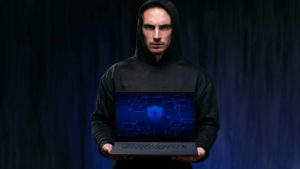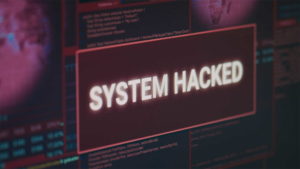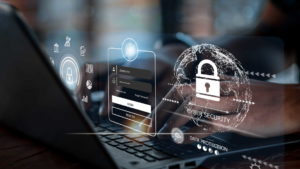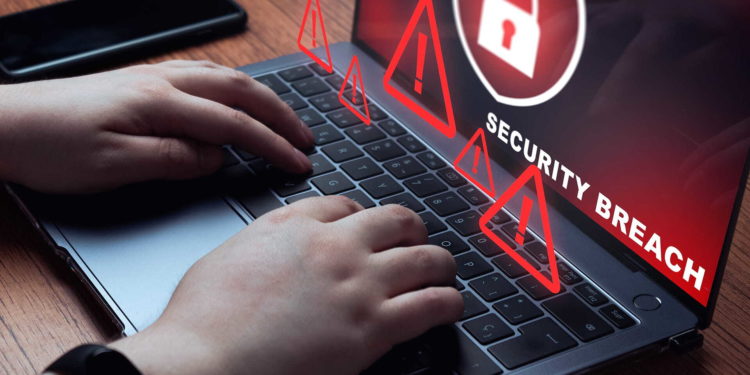Cybersecurity mistakes are the common digital cons with the rise of technological influence in the world. Cybersecurity is a major worry for individuals and corporations in the digital era. With time things are getting more technical and with that, dark sides impact people.
Even with the increased knowledge of cyber threats, a lot of people continue to make simple mistakes that expose them to attacks. By being aware of these errors and knowing how to avoid them, you can greatly improve your online security first.
However, it is important to be aware in the first place because awareness will make you to be digitally responsible.
Be it cybersecurity companies, individuals, or anyone online, it is wise to be digitally literate.
Generally, preventing cyber security major errors involves creating strong, one-of-a-kind passwords for every account, updating software, guarding against phishing, staying away from unprotected Wi-Fi networks, and frequently backing up data. Adopting these recommended procedures will help you lower your vulnerability to online dangers.
Furthermore, Cybersecurity is a continuous activity that demands precaution and care. You can stay secure in a world where people are connecting more and more if you take the time to comprehend and put these tactics into practice.
Users are exposed to new cybersecurity pitfalls as cyberattacks become more frequent and have more detrimental effects. Nonetheless, many of the most effective defenses hold true despite the constantly changing threat situation.
Often convenience is one of the many reasons why people frequently take unnecessary risks. They don’t take digital threats seriously, don’t put security first, and let their information flow anywhere.
Furthermore, it is important to understand the following terms beforehand;

Cyberattacks
Hackers and other bad actors try to harm, interfere with, or obtain unauthorized access to computer systems, networks, or data through cyberattacks. Imagine it like a theft attempt where the objective is your computer or internet data rather than your actual residence. Typical forms of cyberattacks are:
Phishing: When someone pretends as someone you trust, they trick you into disclosing sensitive information.
Malware: It is malicious software that targets your computer in an attempt to steal or harm data.
Ransomware: It is Malware that locks your files and demands payment to unlock them.
Denial of Service (DoS): When a website or service is overloaded, it prevents users from using it.
Cybersecurity
Cybersecurity is the process of defending your data, networks, and computer systems against online threats. It is like equipping your home with security cameras, alarms, and locks to prevent housebreakers.
Important features of cyber security consist of Firewalls, Antivirus, encryption, Strong Passwords, and Frequent Updates.
Addressing cybersecurity mistakes

One of the most common cybersecurity mistakes is utilizing a work device for personal use. Using a work laptop for personal email or online shopping may seem convenient, but it can lead to serious security risks. Engaging in personal activities might expose users to uncertain websites and downloads, raising the possibility of malware and other cyber threats on devices that also store confidential company data.
Ignoring software updates is another common error. Upgrades for operating systems and apps are frequently released, and these upgrades frequently contain fixes for security flaws. Your devices are left vulnerable to known risks that scammers can take advantage of if you delay or ignore these upgrades. One easy approach to make sure your software is constantly up to date is to enable automatic updates.

Furthermore, sharing or reusing passwords is another cyber security major error. Cybersecurity experts have warned consumers repeatedly not to use the same password across several accounts, but many still do. This is a very dangerous practice since it puts all other accounts that share the same password at risk if one account is compromised. This issue can be made worse by disclosing passwords to coworkers, acquaintances, or relatives.
Connecting to public Wi-Fi without using a virtual private network (VPN) is the third most frequent error. Airports, coffee shops, and lodging facilities frequently include public Wi-Fi networks that are not secure. Cybercriminals can freely interrupt data being transmitted over these networks, possibly obtaining private messages and login credentials, among other sensitive information.

Replying to messages from senders they don’t know is another dangerous habit. Phishing attempts frequently employ emails or messages that appear authentic to fool people into disclosing personal information or downloading malicious software. Even with knowledge of these strategies, phishing scams continue to deceive a lot of individuals.













